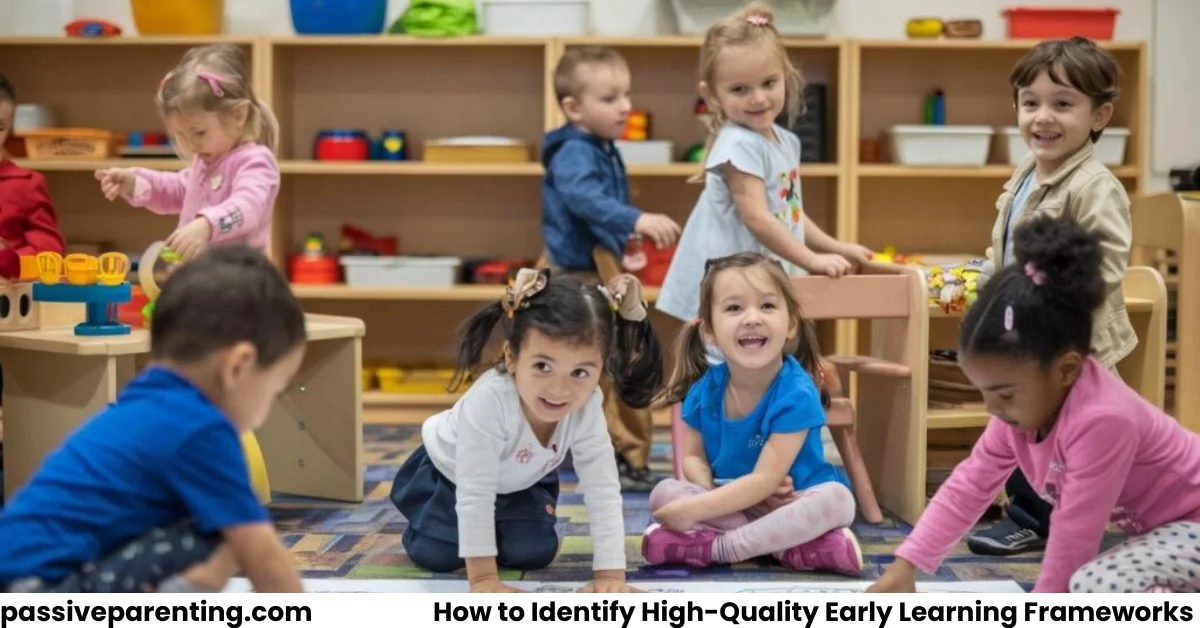Miscarriage is a deeply emotional and painful experience, often accompanied by feelings of grief, loss, guilt, and isolation. If someone close to you has experienced a miscarriage, knowing what to say—or what not to say—can make all the difference in helping them feel supported and understood. This guide offers compassionate, respectful, and practical advice on how to comfort someone who has had a miscarriage, whether you’re speaking in person, sending a message, or writing a sympathy card.
Understanding the Grief of Miscarriage
Before offering support, it’s important to understand that miscarriage is not just a physical loss; it’s an emotional and psychological one. According to the American Pregnancy Association, up to 20% of known pregnancies end in miscarriage, yet it’s a topic still surrounded by silence. Many individuals who experience it feel a profound loss, similar to the grief of losing a loved one.
Grief after miscarriage can include:
- Sadness and depression
- Guilt or self-blame
- Anger or frustration
- Anxiety about future pregnancies
- Emotional numbness or shock
Recognizing the depth of this grief allows you to approach the situation with empathy and sensitivity.
What to Say When Someone Has a Miscarriage
Finding the right words when someone experiences a miscarriage can be deeply challenging. You may fear saying the wrong thing or not knowing what’s “enough.” But even simple, sincere words can offer powerful comfort during such a heartbreaking time.
Below are some compassionate and meaningful phrases you can say (or text) to someone who had a miscarriage, whether it’s a friend, partner, coworker, or loved one.
1. “I’m so sorry for your loss.”
This phrase is timeless, respectful, and always appropriate. It acknowledges the emotional weight of miscarriage and signals your compassion without overstepping.
Why it helps: It’s direct and heartfelt, avoiding any attempt to minimize or fix their grief.
2. “I can’t imagine how hard this must be, but I’m here for you.”
When you’re unsure what to say, it’s okay to admit that. Expressing empathetic humility shows your emotional presence without claiming to understand their experience.
Why it helps: It avoids clichés and offers genuine support.
Backed by experts: Grief counselors emphasize the power of simply being present and acknowledging that each loss is personal (Cleveland Clinic).
3. “You are not alone.”
After miscarriage, many people feel isolated, ashamed, or emotionally distant from others. Reassuring them that their experience is shared—and that you’re walking beside them—can be incredibly grounding.
Why it helps: It combats the loneliness often reported after pregnancy loss (Mayo Clinic).
4. “I’m here to listen whenever you’re ready to talk.”
Grieving parents may not want to talk right away. By giving them space without pressure, you signal emotional safety and long-term support, rather than a one-time gesture.
Why it helps: It gives control to the person grieving and avoids pushing for a reaction.
5. “Your baby mattered, and your grief is valid.”
This statement honors their loss and validates their pain. Miscarriage is often under-recognized as real grief, especially in early pregnancy, so affirming their emotions is vital.
Why it helps: It offers recognition and validation—two things many grieving people crave but seldom hear.
According to the American Pregnancy Association, people who experience miscarriage often feel their pain is dismissed or misunderstood, increasing feelings of guilt and depression.
6. “Take all the time you need. I’m here in the meantime.”
This gently reminds them that there’s no “right” way or schedule for grieving. You’re showing that you’ll still be around, even if they’re quiet for a while.
Why it helps: Offers reassurance without pressure for communication or quick healing.
7. “Would it be okay if I brought you dinner (or ran an errand)?”
Sometimes actions speak louder than words. Offering to help in small ways communicates care and presence when words fall short.
Why it helps: It’s proactive support without being intrusive, and gives them one less thing to worry about.
8. “It’s okay to cry, be angry, or feel however you’re feeling.”
Miscarriage can bring a flood of emotions—sadness, confusion, guilt, even numbness. Letting them know all feelings are valid creates a safe space for healing.
Why it helps: Encourages emotional honesty without judgment.
9. “Can I check in again later this week?”
Grief doesn’t end after a day or two. Letting them know you’ll follow up extends your support beyond the initial shock—which is often when support dwindles.
Why it helps: Builds trust and long-term connection.
10. “There’s no pressure to respond—just know I’m thinking of you.”
Especially for text messages, this phrase allows them to receive your love without obligation to reply. It’s gentle, non-intrusive, and kind.
Why it helps: Encourages passive support that doesn’t overwhelm.
What Not to Say to Someone Who Miscarried
Even well-meaning comments can unintentionally cause pain. Avoid the following:
- “At least it happened early.”
- “You can always try again.”
- “Everything happens for a reason.”
- “It’s nature’s way of handling things.”
- “Others have had it worse.”
These phrases can come across as dismissive and invalidate the grief they are experiencing.
Comforting Words for a Friend Who Had a Miscarriage
If your friend is going through a miscarriage, use gentle, loving language that shows you are thinking of them. Here are some ideas:
- “I’m holding space for you right now.”
- “Sending you love and strength.”
- “You’re in my thoughts every day.”
- “I know how much this baby was wanted and loved.”
According to the Mayo Clinic, emotional support and validation are among the most helpful forms of comfort after miscarriage.
What to Text a Friend Who Had a Miscarriage
When distance prevents in-person comfort, a caring text message can go a long way. Here are examples:
- “I just heard the news and I’m so sorry. If you want to talk, I’m here.”
- “No words feel right, but please know I’m thinking of you and sending love.”
- “Would it be okay if I brought over a meal or helped around the house?”
Keep it short, sincere, and supportive. Don’t expect a reply right away.
What to Write in a Sympathy Card After a Miscarriage
A card is a tangible reminder that you care. You might write:
- “Thinking of you and your sweet baby with love.”
- “Words fall short, but I hope you feel surrounded by love.”
- “May you find comfort in knowing how deeply you are cared for.”
Include a small gesture if appropriate—a flower, candle, or donation in memory of the baby.
How to Support Someone Going Through a Miscarriage
Support goes beyond words. Actions matter too. According to Cleveland Clinic, emotional and practical support both play a role in recovery.
Ways to support:
- Offer meals or coordinate food delivery.
- Help with chores if they have other children.
- Send care packages with comfort items like tea, bath products, or books.
- Attend memorials or remembrance ceremonies if invited.
- Check in regularly without expectation.
Sometimes, your presence alone is the most meaningful gesture.
Miscarriage Condolences: Short Messages & Quotes
Short and heartfelt quotes can offer comfort:
- “There is no footprint too small to leave an imprint on this world.”
- “Grief is the price we pay for love.” – Queen Elizabeth II
- “Some people only dream of angels. We held one in our arms.”
These can be included in a card, message, or gift note.
Actions Speak Volumes: How to Support Someone Who Had a Miscarriage
While words offer comfort, actions often communicate love and care on a deeper level—especially when someone is too emotionally overwhelmed to express what they need. Miscarriage is not only a physical loss but also an emotional and spiritual one, and small, intentional gestures can bring lasting comfort.
Here are meaningful ways to support someone who has had a miscarriage:
1. Offer to Babysit Their Other Children (If Applicable)
If the grieving parent has other children, they may be struggling to balance parenting with mourning. Offering to care for their kids—even for a few hours—gives them a much-needed break to rest, cry, or simply process in peace.
Why it helps: It’s practical support during a time when energy and emotional capacity may be low.
Use with sensitivity: Say, “If you’d like, I can watch the kids for a few hours so you can have some space to rest.”
2. Help with Errands, Meals, or Groceries
Grief can make even simple daily tasks feel overwhelming. Offering to pick up groceries, prepare a meal, or run an errand can ease their burden and show you’re thinking of their needs.
Practical ideas:
- Drop off a ready-to-eat dinner or freezer meals
- Restock household staples like toilet paper or snacks
- Offer grocery delivery or gift cards for Instacart, Uber Eats, or Amazon Fresh
3. Send Flowers or a Handwritten Sympathy Card
A thoughtful card or bouquet can be a gentle way to express sympathy—especially if you’re unsure what to say in person. In your message, avoid platitudes and focus on offering heartfelt condolences.
What to write in a miscarriage card:
- “Thinking of you and sending all my love during this painful time.”
- “Your loss matters. Your baby mattered.”
The American Psychological Association notes that gestures of support, including cards and acknowledgment, help reduce feelings of isolation after miscarriage.
4. Light a Candle in Memory of Their Baby
Lighting a candle in the baby’s honor—especially on the due date or Pregnancy and Infant Loss Remembrance Day (October 15)—is a beautiful symbolic gesture. You can do it privately and share a photo, or invite them to light one with you in a moment of reflection.
Why it helps: Symbolizes remembrance, peace, and ongoing emotional support.
5. Gift a Piece of Remembrance Jewelry
A delicate necklace, bracelet, or charm engraved with the baby’s due date, birthstone, or initials can serve as a tangible token of love and remembrance. These keepsakes are often cherished and worn close to the heart.
Gift ideas:
- A necklace with angel wings or tiny footprints
- A locket with a quote like “Too beautiful for Earth”
Psychology tip: Tangible memorials help some grieving parents feel closer to their lost child, according to the Journal of Perinatal & Neonatal Nursing.
6. Mark Important Dates on Your Calendar
Loss doesn’t disappear after a week. By noting anniversaries such as:
- The baby’s due date
- The date of the miscarriage
- Mother’s Day or Father’s Day
—you show that you remember, too.
Why it helps: Validates the ongoing grief and honors their journey in the long term.
7. Create a Care Package
A curated miscarriage care package can include:
- Comfort items: tea, tissues, journal, blanket
- Self-care items: bath salts, candles, skincare
- Supportive books like “Empty Cradle, Broken Heart” or “Grieving the Child I Never Knew”
Tip: You can also use services like Spoonful of Comfort or Sunshine Boxes to send pre-made care packages for miscarriage sympathy.
8. Simply Show Up and Be Present
Sometimes, your presence is the greatest gift. Sit in silence with them. Cry if they cry. Bring their favorite coffee. Watch a movie together. Just be there without trying to fix anything.
Why it helps: It reinforces that their grief isn’t a burden—and that you’re someone they can lean on.
Coping With Loss: Honoring the Unborn Child
Many people find comfort in honoring the memory of their baby:
- Planting a tree or garden
- Creating a memory box
- Naming the baby (if they choose)
- Donating to a charity in their name
Grief rituals can aid the healing process, giving the loss a meaningful space.
What to Say Weeks or Months After the Miscarriage
Grief doesn’t end after a few days. Check in long after others have stopped asking.
Say:
- “I’ve been thinking of you and your baby today.”
- “How are you doing lately? I’m here if you ever want to talk.”
- “Just wanted you to know I remember.”
Your continued support helps combat feelings of isolation.
FAQs: Miscarriage Support and Messaging
Final Thoughts: Saying the Right Thing After Miscarriage
There’s no perfect phrase, but saying something is almost always better than silence. By acknowledging the loss, offering words of compassion, and following up with thoughtful actions, you can be a source of genuine comfort.
Remember: miscarriage grief is real, complex, and different for everyone. Your support—through presence, messages, or meaningful gestures—can help someone feel seen and less alone.




